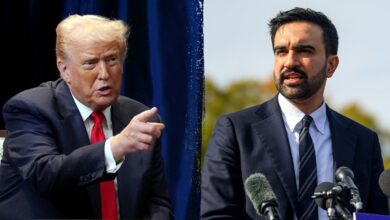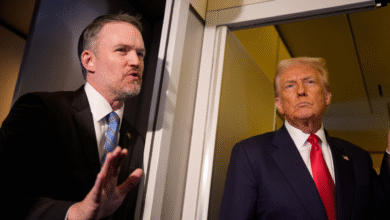Here’s what to expect from Trump’s ‘unprecedented’ war on cartels
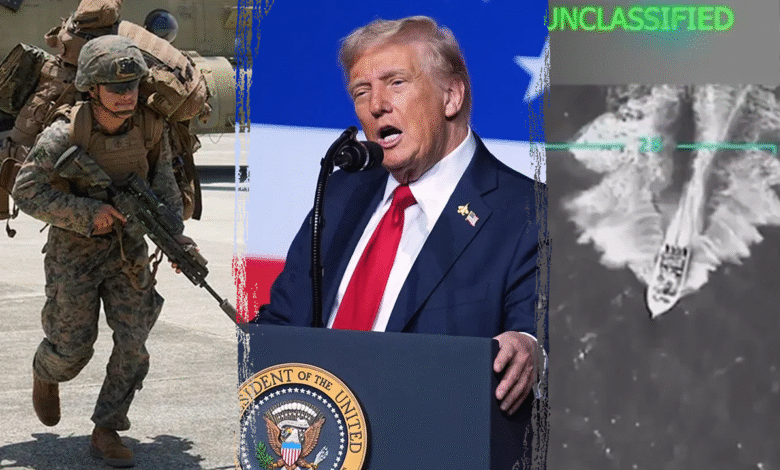
NEWYou can now listen to Fox News articles!
As the United States launches a series of deadly strikes on drug cartel ships and President Donald Trump declares “armed conflict” with the cartels, experts have offered a glimpse of what Americans can expect next in the “quasi-war” unfolding on the nation’s doorstep.
On Tuesday, Trump announced that the U.S. military had carried out another kinetic strike against a suspected drug ship off the coast of Venezuela, killing six suspected traffickers. It is the fifth such strike against a drug boat in recent weeks and, experts say, one of the important first steps in decimating the cartels.
The strikes come after the White House sent a memo to Congress on September 30 informing it that the United States is now engaged in a “non-international armed conflict” with drug traffickers. Currently, the United States has amassed an impressive collection of naval and air assets stationed around Venezuela, a country whose socialist dictator, Nicolás Maduro, has been accused by the Trump administration of being in cahoots with cartels.
Experts say the strikes could mark the start of a broader military campaign targeting the cartels’ logistics and command networks.
WAR ON CARTELS? WHITE HOUSE SAYS IT HAS AN IRON BUSINESS TO HIT NARCO-TERRORIST GROUPS
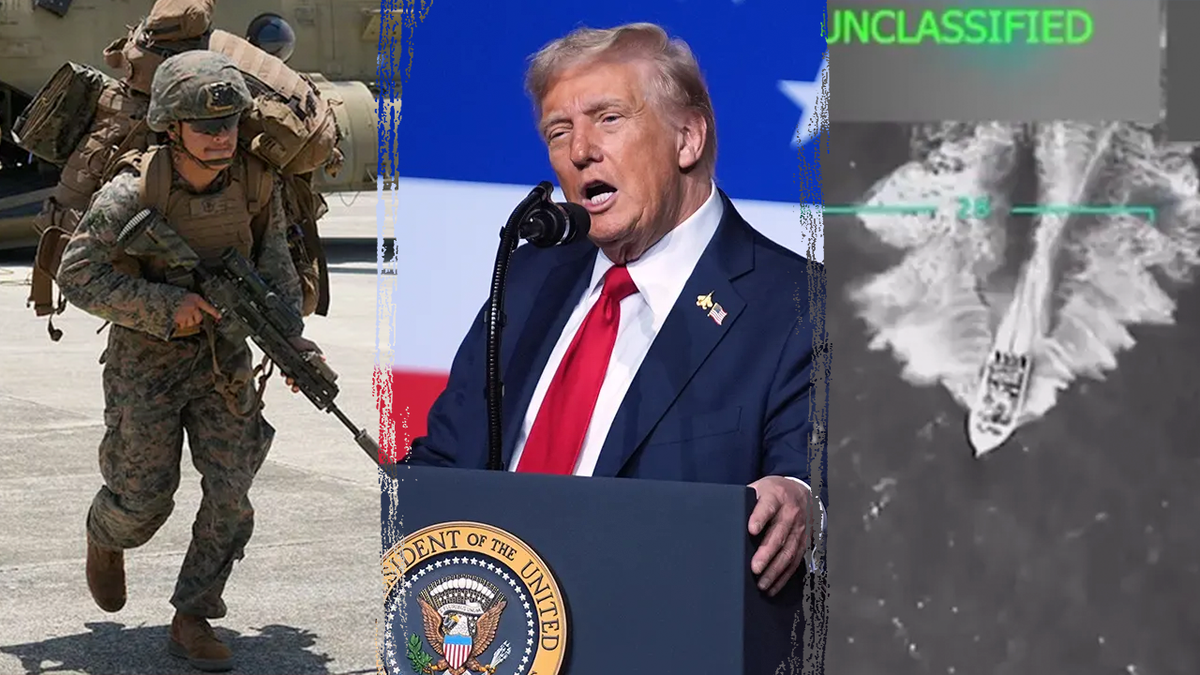
President Donald Trump declared “armed conflict” against cartels transporting drugs to the United States and launched a series of strikes against drug boats. (@realDonaldTrump via Truth Social; Evan Vucci/AP Photo; Aaron Favila/AP Photo)
Speaking to Fox News Digital, Derek Maltz, former acting director of the Drug Enforcement Agency (DEA), called the Trump administration’s actions “an unprecedented action in the face of an unprecedented threat.”
He explained that, unlike previous administrations, the second Trump administration allowed for a “whole of government” approach to targeting cartels by designating them as “foreign terrorist organizations.” This designation authorizes not only agencies like the DEA to take action against cartels, but also the Departments of War, State, Treasury, Justice and others.
“This is not the same old drug crisis that we’ve been talking about for 50 years. This is something entirely different. It’s a poisoning crisis and our children are dying,” Maltz said, adding, “The cartels are killing more Americans than any other terrorist organization in the history of this country.”
In response, Maltz said the president is “building a powerful force for good, an army of good, to help defeat evil and destroy these adversaries who are killing our citizens at record levels.”
Maltz said the first step is to close the border to stop the flow of fentanyl, methamphetamine, cocaine and other drugs, as well as criminal elements into the United States by land. This, Maltz explained, pushed cartels to transport drugs by sea and air, prompting the Trump administration to crack down on those cartels as well.
HOW TRUMP’S STRIKES AGAINST SUSPECTED NARCO-TERRORISTS ARE REFORMING THE CARTEL BATTLEFIELD: “ONE-WAY TICKET”
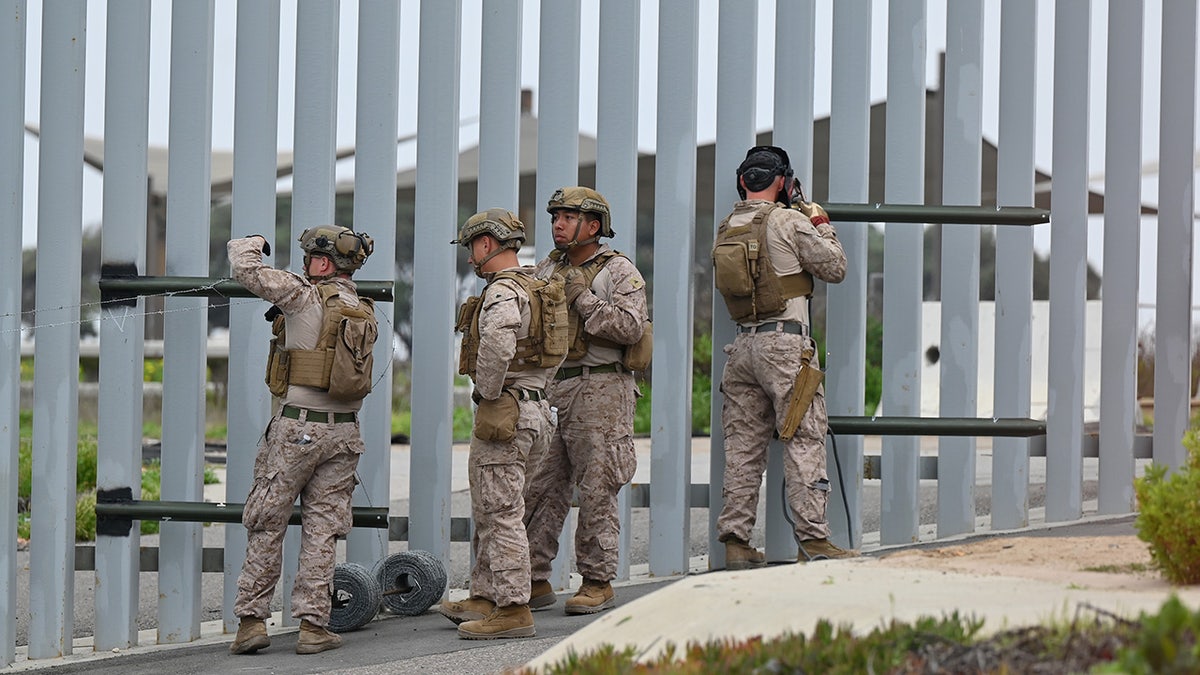
U.S. Marines install concertina wire along the San Diego border area, seen from Playas de Tijuana, Baja California, Mexico, March 25, 2025. (Carlos Moreno/Anadolu via Getty Images)
He added that the United States will next need to go after the cartels’ command nodes, either working through international partners like Mexico and El Salvador or, as in the case of strikes against drug trafficking boats, directly through U.S. military assets.
“From everything I’ve heard, the Mexican government is hitting the labs really hard, making more arrests than they’ve been making…so they’re going after the cartels aggressively. They’re deporting these really bad guys back to America to be prosecuted.”
Brent Sadler, a senior fellow in naval warfare and advanced technology at the Heritage Foundation’s Allison Center for National Security, described the conflict with the cartels as a kind of “quasi-war” in which the United States is fighting not only non-state, paramilitary-style cartels but also indirectly international enemies like Venezuela, Hezbollah and China that have worked with the cartels.
“The demonstration of their willingness to go and kill these cartel members while they are transporting their ships full of drugs has a deterrent effect on their support network,” he explained. “And when they start to lose that ability to monetize their support network, the business model collapses and they start to fight against each other; they turn on each other.”
Trump refuses to rule out a strike in Venezuela. What’s Next for Trump’s War on Drugs?
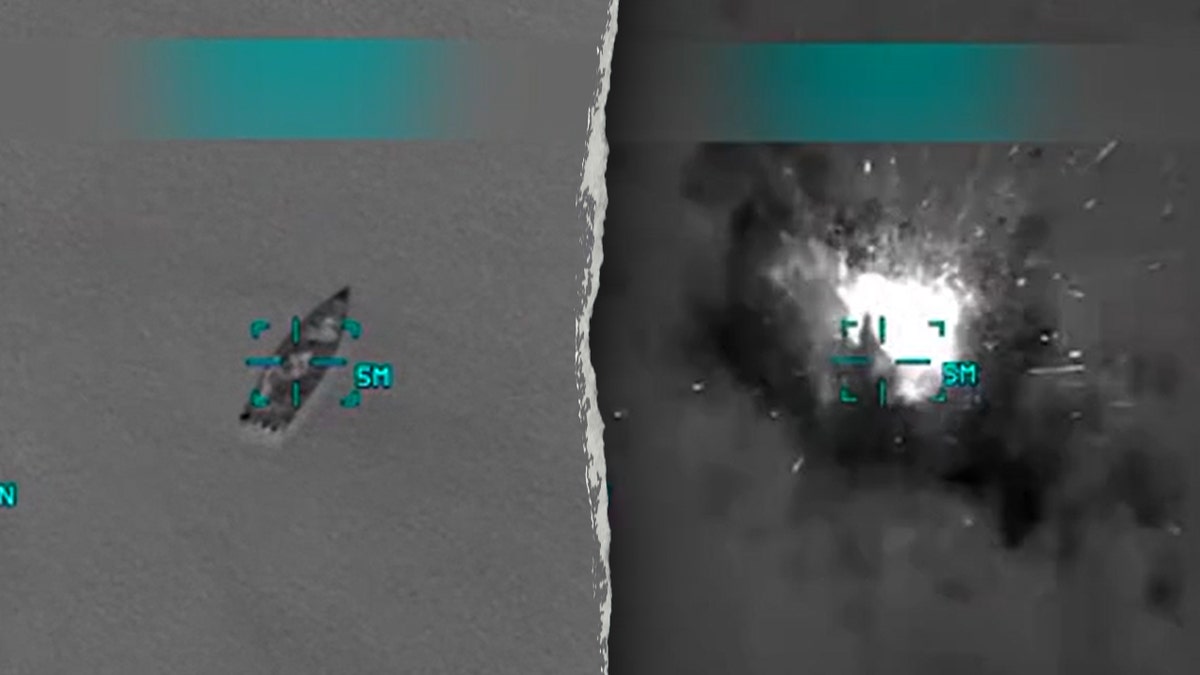
The United States killed six suspected drug traffickers on a boat in international waters near Venezuela, President Donald Trump announced Tuesday, October 14, 2025. (trueDonaldTrump/Truth Social)
Sadler said that while U.S. forces currently appear focused around Venezuela in the Caribbean, he expects attention will eventually turn to cartel drug routes in the Pacific as well as transatlantic routes to Africa and Europe.
“I wouldn’t be surprised if you start to see the military weight of this thing or the balance of military assets shift toward the Pacific. Or if they shift more toward the Central Atlantic to pursue these other routes.”
He predicted that maritime strikes would continue and that if the cartels began to rely more on aircraft, Americans could begin to see some of them being “shot out of the sky” in international airspace.
Ultimately, he said strikes would likely be reduced depending on the scale of U.S. military ships in the Caribbean. When that happens, he said, the United States will likely both leverage and enable its international partners to interdict drug vessels, as well as support U.S. special operations capabilities, helicopters and aircraft operating from Puerto Rico and other nearby bases, to provide surveillance and the ability to intercept the vessels.
Trump approves military action against Latin American cartels classified as terrorist organizations
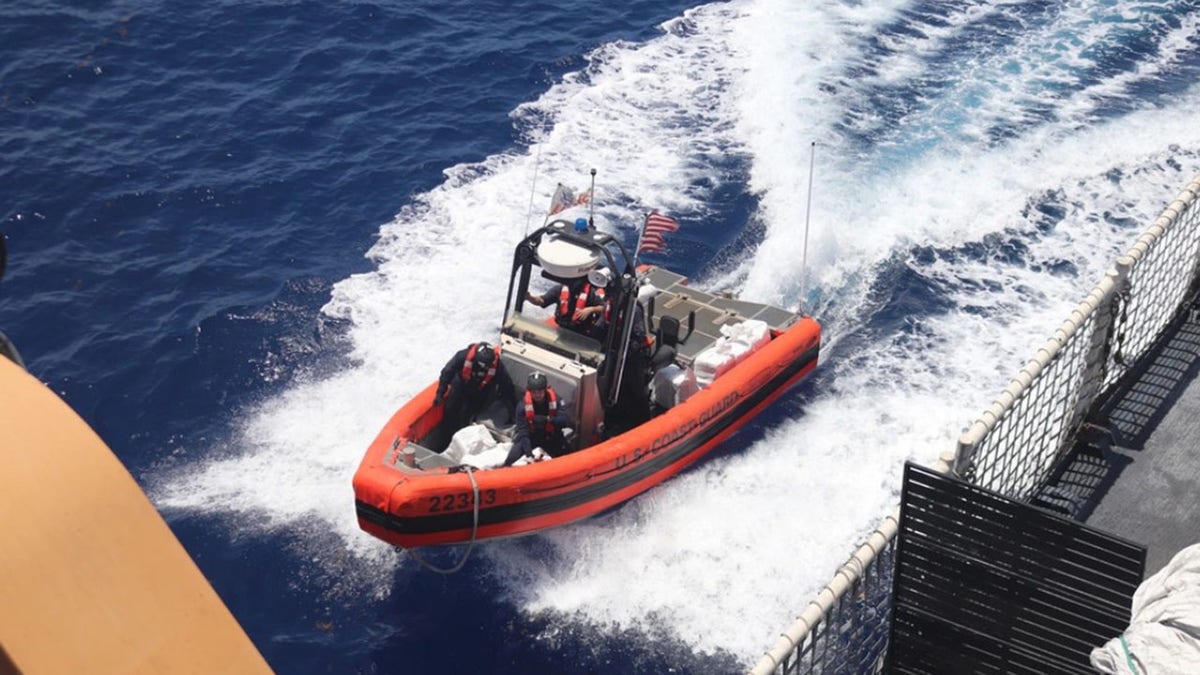
A Coast Guard crew transfers seized illicit drugs from a ship in the Caribbean on August 15. (U.S. Coast Guard photo)
Both Sadler and Maltz stressed the importance of tackling cartels from all angles, using all available partners and government agencies, including education.
“We need to teach. We need to do a lot more work on the demand side,” Maltz said.
CLICK HERE TO DOWNLOAD THE FOX NEWS APP
He predicted that once confirmed, Sara Carter, Trump’s pick to lead the Office of National Drug Control Policy, would “launch numerous educational programs” intended to raise awareness of the dangers of new drugs pushed by cartels and other foreign adversaries.
“We can hit boats, and we can pursue command and control. But if we don’t teach our children and our parents in this country about this devastating crisis with these very, very dangerous and deadly substances that we have never seen in this country in history, then they will continue to find ways to bring these things here,” Maltz said.
